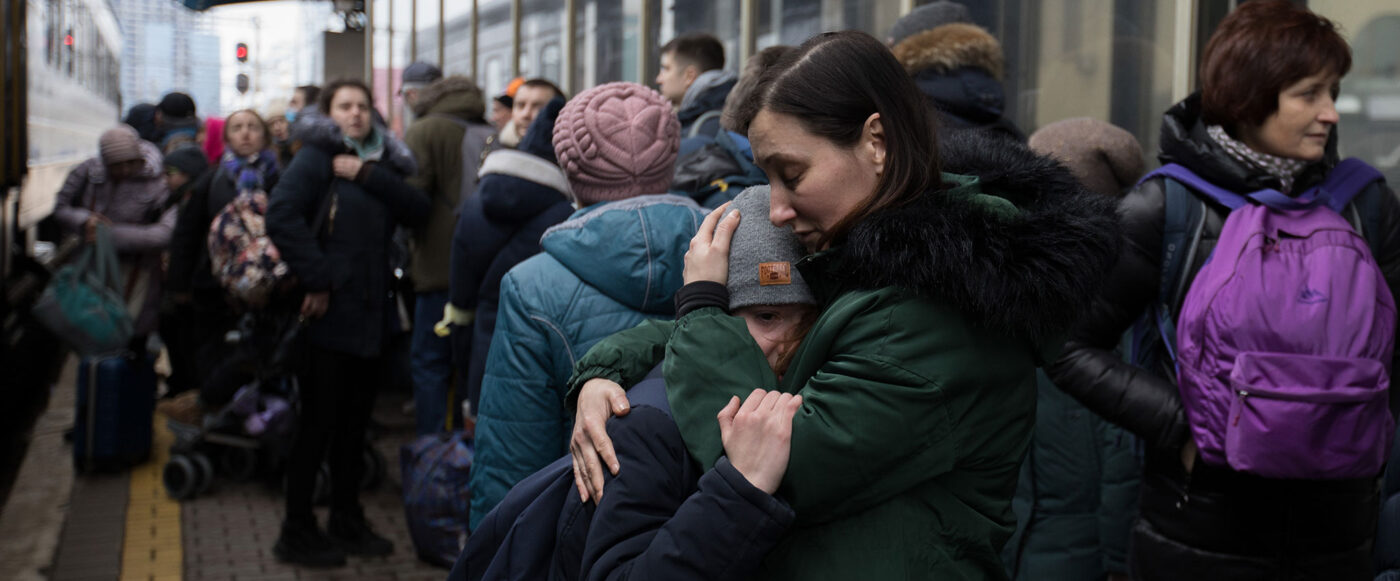At the centre of every war is a humanitarian crisis. This is no different for Ukraine, a country whose feminist values have suffered the consequences of global conflict.
For more than two decades, Western supporters such as NATO, the US and the European Union, have claimed that women’s security is taken into account in their approaches to war. However, in Ukraine, there is little evidence to back their claim. This war is already cementing outdated gender roles, such as the idea that men are brave defenders, whilst women are fragile and need protection. The conscription of fighting aged men, in particular, showcases these values. However, the images of Ukraine’s women fighters, who constitute 15-17% of the Ukrainian fighting force, create an unconventional debate.
Since the beginning of the war, millions of Ukrainians have been in need of humanitarian assistance. This is especially true for vulnerable groups, such as women, children, the elderly and people with disabilities. These communities have suffered the cost of war, including trauma, loss of education, fear of bombardments and family tragedies – leading to plummeting levels of security and reliance on aid, both at a national and personal level.
Research has shown an increase in human trafficking, sexual violence, survival sex work and an alarming number of feminicides. Greater circulation of weapons is undoubtedly linked to the spike in gender based violence, a prominent and hugely important issue that needs to be addressed. War and any form of large scale conflict is directly linked with greater inequality. Hence, it is vital for Ukrainian women and other communities to be included at every stage of peace and aid initiatives.
The fact is that basic social justice issues are often overlooked in the pursuit for peace. World leaders fail to recognise that peace does not need to come at the cost of civilian suffering, but rather can be achieved through reducing social unrest. The West’s sanctions on Russia may initially hit the middle and upper classes the hardest, but it is ultimately the less powerful and marginalised communities who take the brunt of the consequences.
In order to truly achieve peace and stability, Western allies must take the ubiquitous and detrimental challenges women face into account when forming their policies. Through this, aid initiatives can have a real and direct positive impact on Ukrainian people.
